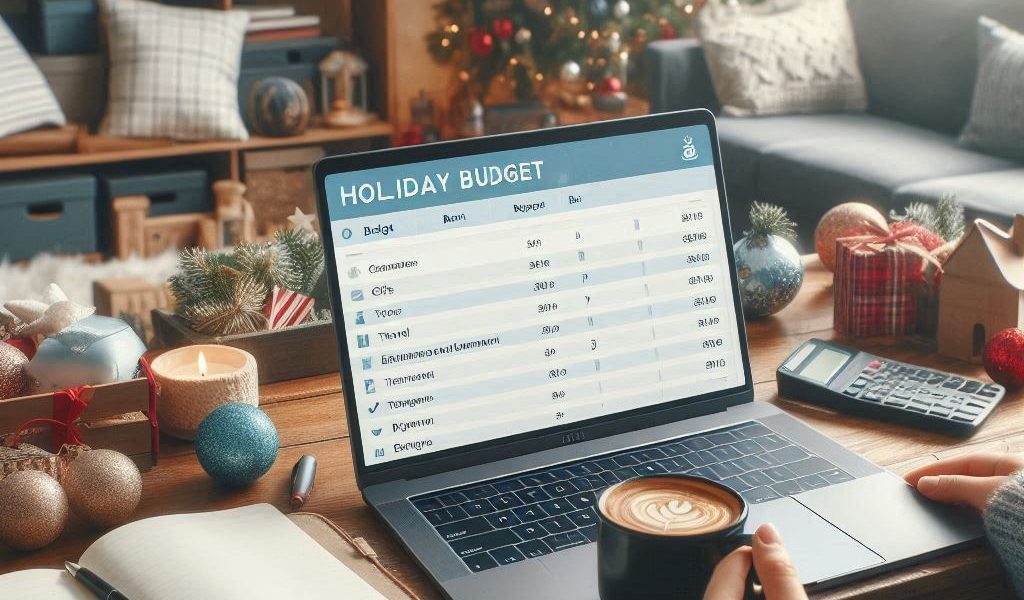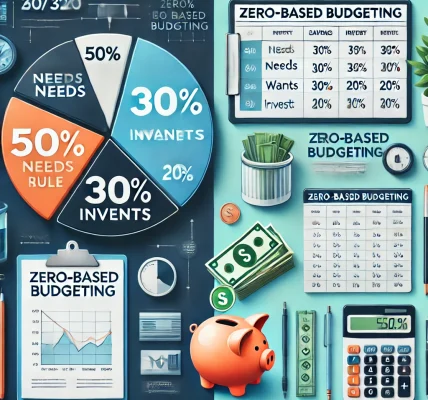How to Prepare a Holiday Budget and Avoid Debt: Smart Tips for Stress-Free Holiday Spending
The holiday season is often a time of joy, celebration, and giving. However, for many, it can also lead to financial stress due to overspending and accumulating debt. From gifts and travel to entertainment and dining, the costs can quickly add up. But with proper planning and budgeting, you can enjoy the festivities without the financial hangover. In this blog, we’ll show you how to prepare a holiday budget, avoid debt, and stay on track with your financial goals.
Why a Holiday Budget is Essential
Holiday spending can be unpredictable, and without a clear budget, it’s easy to get carried away. A holiday budget helps you plan ahead, set realistic expectations, and avoid unnecessary debt. Here’s why budgeting during the holiday season is crucial:
- Prevents overspending: A budget allows you to prioritize expenses and avoid impulse purchases.
- Minimizes stress: Knowing exactly how much you can spend on gifts, travel, and entertainment removes uncertainty and financial anxiety.
- Prepares you for the new year: A solid holiday budget ensures that you won’t carry debt into the next year, setting a positive tone for your finances.
How to Create a Holiday Budget
Creating a holiday budget is similar to budgeting for any other aspect of your life, but it requires a little extra thought to cover the unique expenses of the season. Here’s a step-by-step guide to help you prepare:
1. Determine Your Total Holiday Spending Limit
The first step in creating a holiday budget is to figure out how much you can afford to spend. Be honest with yourself about your current financial situation and avoid going into debt. Use the following steps to set a spending limit:
- Review your finances: Look at your current income, savings, and any extra funds you can allocate to the holidays. Don’t rely on credit cards or loans to fund your holiday spending.
- Set a realistic goal: A common rule of thumb is to spend no more than 1-2% of your annual income on holiday-related expenses. Adjust this based on your financial situation, but keep it realistic.
2. Break Down Your Expenses
Once you have your total spending limit, break it down into categories. Common holiday expenses include:
- Gifts: Set a limit for each person on your gift list and stick to it. Consider homemade or experiential gifts if you want to save money.
- Travel: If you plan on traveling, include transportation, accommodation, and food costs. Look for early bird discounts and budget-friendly options.
- Entertainment: Think about the cost of parties, dining out, or other seasonal activities. Allocate funds for events you plan to attend.
- Decorations: While holiday decorations can add charm, they can also be costly. Set a budget for decorations, keeping in mind what you already own.
- Charitable Donations: If you plan to donate to charities during the holiday season, include these costs in your budget as well.
3. Track Your Spending Throughout the Season
Tracking your spending is crucial to staying within your holiday budget. Consider using a budgeting app or spreadsheet to monitor your expenses in real-time. Some tools allow you to set category limits, so you’re notified when you’re approaching your spending limits.
- Use a budgeting app: Apps like Mint, YNAB (You Need a Budget), or PocketGuard can help you track your spending and keep you accountable.
- Make adjustments: If you find that you’re overspending in one category, reallocate funds from another category. This ensures you don’t exceed your overall budget.
4. Plan for Post-Holiday Expenses
While it’s easy to focus solely on the expenses during the holiday season, it’s also important to plan for the aftermath. Consider how you’ll manage any leftover holiday debt and how to adjust your budget after the new year.
- Pay off credit card balances: If you do use credit cards during the holidays, make sure to pay them off as soon as possible to avoid high-interest charges.
- Reassess your finances: After the holidays, review your overall spending and savings. Adjust your budget for the new year to account for any changes.
Tips to Avoid Debt During the Holiday Season
While budgeting is key to managing your holiday expenses, there are additional steps you can take to ensure that you avoid accumulating debt:
1. Avoid Using Credit Cards for Non-Essential Purchases
Credit cards can easily lead to debt if you don’t pay them off in full. Try to limit your use of credit cards to necessary purchases, and avoid the temptation to overspend. If you do use a credit card, make sure you can pay off the balance at the end of the month.
2. Set Up a Holiday Savings Fund Early
One of the best ways to avoid holiday debt is to save in advance. Set up a dedicated savings fund months before the holiday season to cover expenses. Even small contributions throughout the year can add up to a substantial amount by the time the holidays roll around.
- Set automatic transfers: Set up automatic transfers from your checking account to your holiday savings fund each month. This way, you’re prepared when the season arrives.
- Save bonus or extra income: If you receive any bonuses, tax refunds, or extra income during the year, consider putting them into your holiday savings fund.
3. Avoid Last-Minute Purchases
Last-minute shopping often leads to impulsive spending. Try to finish your gift shopping early, taking advantage of sales and discounts to get the best deals. Planning ahead gives you more time to find the perfect gift at a reasonable price.
4. Look for Ways to Cut Back on Non-Essential Spending
If your budget is tight, consider cutting back on non-essential holiday expenses. For example, instead of extravagant dinners or expensive parties, host potlucks or gather at someone’s house for an intimate celebration.
- Limit dining out: Home-cooked meals are often more affordable and can still create a festive atmosphere.
- DIY gifts: Handmade or personalized gifts can be more meaningful and budget-friendly than store-bought items.
Final Thoughts: Stay Financially Healthy This Holiday Season
The holidays should be a time of celebration, not financial strain. By planning ahead, setting a realistic holiday budget, and sticking to it, you can enjoy the season without accumulating debt. Remember, a little discipline and foresight can go a long way in helping you navigate holiday spending and start the new year on a strong financial note.




